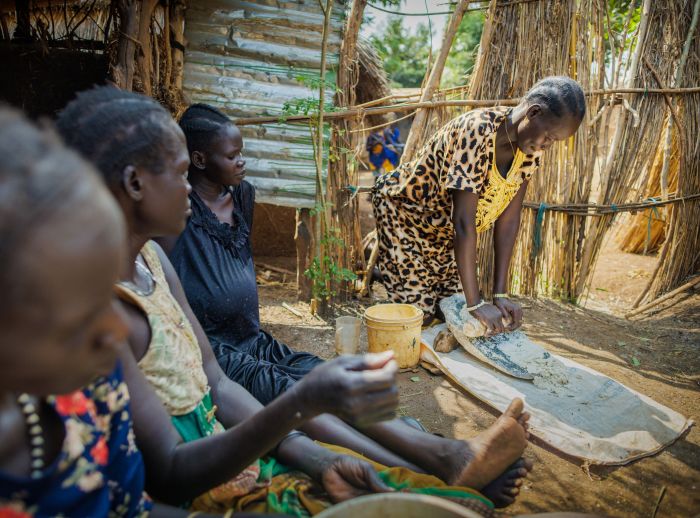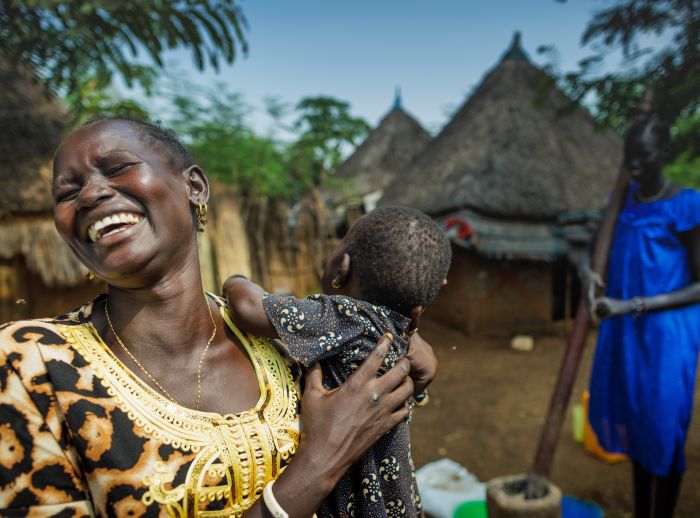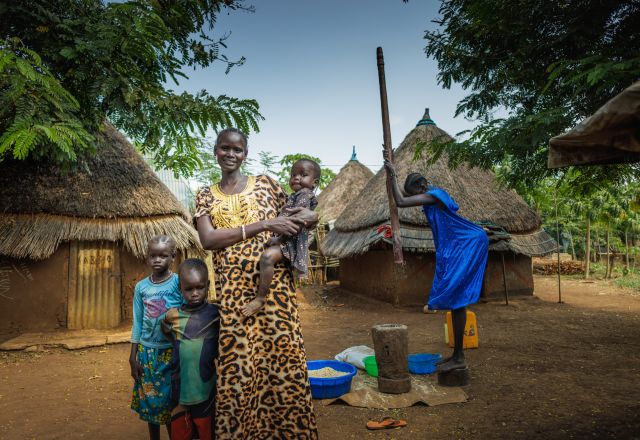A Long and Painful Journey
Ngakutoth Biel, 29, is a South Sudanese refugee, a mother of three, and currently expecting another child. Her family’s journey to safety began in 2017, when war forced them to flee their home in Juba. Separated from her husband during the chaos, she eventually reunited with him at the Ethiopian border. But the road to safety was harrowing, Ngakutoth lost her uncle to violence and her first son to illness during the month-long journey on foot.

They arrived in Ethiopia with nothing, no food, no shoes, and no shelter. The family slept on the bare ground, exposed to snakes and wild animals, with only unsafe water to drink.
Despite the trauma, she found a glimmer of comfort in the refugee camp: “When I arrived and saw so many people in similar situations, I started to feel a sense of community. The support from the organisations here helped me feel better.”
From Struggle to Stability
At first, the camp had severe shortages of clean water and proper shelter. Ngakutoth had to walk long distances, often half an hour, to fetch water, only to find the tanks empty. The wait was long, the loads were heavy, and the water, when available, was barely enough to meet basic needs.
When there was no water, people had no choice but to drink from contaminated sources,” she said. “It caused sickness and sadness. I didn’t know how I would keep my children safe.— Ngakutoth Biel
But things changed when Oxfam installed new water points across the settlement. Now, every block, including hers, has access to clean, safe water.
“Life became easier,” she said. “I can now care for my baby and my other children without spending hours carrying heavy containers.”

But things changed when Oxfam installed new water points across the settlement. Now, every block, including hers, has access to clean, safe water.
“Life became easier,” she said. “I can now care for my baby and my other children without spending hours carrying heavy containers.”
A Brighter Future for Her Children
Water wasn’t the only barrier. Education for her children once seemed out of reach, but thanks to the support available in the camp, her children are now enrolled in school. “They get everything they need, books, bags, uniforms,” Ngakutoth said. “It’s a relief to know they won’t go through what I went through.”
Though access to water remains inconsistent in some parts of the camp, the improvement is undeniable. Ngakutoth is hopeful for the future, not just for herself but for her entire family. “One of my biggest hopes is to reconnect with the relatives we lost contact with,” she said. “And I want my children to graduate and support me, so I can leave behind the struggles I faced while caring for them.”

